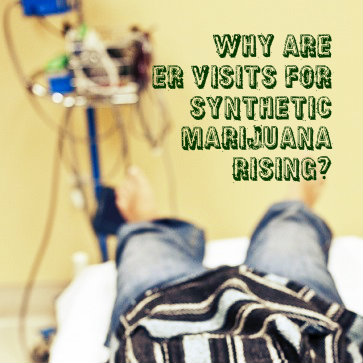Getting professional support and care for your addiction is an essential element in your journey toward sobriety. Addiction, whether to alcohol or drugs, is a disease. It is a chronic disease that requires treatment. You need to learn skills that you will use for the rest of your life to avoid using again. Because professional care is so important to recovery, it is a good idea to spend some time finding the facilities and the caregivers that will best match your needs. No single approach or treatment philosophy works for everyone. You need to find what works for you by doing some research and asking questions.
Will Your Family Support You In Recovery?
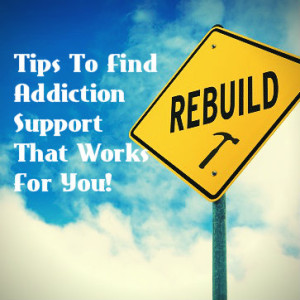 Besides professional care, having the love and support of family and friends is one of the most important tools for recovery. If you have no one you can rely upon for support, you may benefit from a residential rehab facility. This is the type of place in which you stay overnight for a week, a few weeks, or even a month. The support system is built in to the program and includes your fellow patients, counselors, doctors, nurses and staff members.
Besides professional care, having the love and support of family and friends is one of the most important tools for recovery. If you have no one you can rely upon for support, you may benefit from a residential rehab facility. This is the type of place in which you stay overnight for a week, a few weeks, or even a month. The support system is built in to the program and includes your fellow patients, counselors, doctors, nurses and staff members.
Do You Need Flexibility In Your Care?
If your family is available and actively willing to support you in your recovery, you could consider an outpatient program. Another reason to consider outpatient care is if you have other responsibilities that you cannot neglect for the weeks or months needed for residential care. Outpatient programs are designed to have flexible schedules so that you can get the support you need for addiction while still going to work during the day, keeping up with your classes at night, and meeting your family obligations on a day-to-day basis.
Will Religion Help You Stay Clean?
If you have a strong faith, you can find rehab facilities and treatment programs that include a religious element. Many people find that their beliefs are what help them the most when it comes to getting sober and staying clean. If this sounds like you, look for a facility or a program that is faith-based.
Do You Have Concerns About Mental Health?
It is not uncommon for addicts to also struggle with one or more mental health issues. If you have been diagnosed with depression, anxiety disorder, schizophrenia, bipolar disorder or any other mental illness, you need to receive care for your illness as well as for your addiction. The two are most likely intertwined. Make sure you look for a facility that recognizes the importance of a dual diagnosis. It is essential that you work with caregivers who are experienced at working with mental health and addiction together in order to get the best treatment.
How Will You Pay For Addiction Treatment?
Finally, make sure you select a treatment plan that you can afford to finish. There is no point in starting a treatment program only to quit early due to financial stress. If you have health insurance, find out what facilities and programs are covered. If you will be paying out of pocket, determine how much you can afford to spend and use that as part of your criteria for selection.
Finding the right treatment for addiction is important to your success. Treatment programs are not one-size-fits-all and to give yourself the best chance, you really need to shop around for the program and the professionals that will meet your needs. The Substance Abuse and Mental Health Services Administration is a good place to start for information. Take the time to read up and to make a wise choice.
Read More About Why You Need Fellowship To Recover From Addiction
Synthetic marijuana is often sold at gas stations with the promise of producing a high similar to that experienced with the real thing. Unfortunately there are many negative health consequences related to its use, and with law enforcement unable to control its distribution, authorities have issued an alert that hospitals should prepare for an influx of synthetic marijuana cases.
Preparations For Increased ER Visits Need To Begin
A recent editorial warned that the number of emergency room visits related to synthetic marijuana has increased in Colorado in recent months. The researchers warn that more will follow, and preparations for such an increase should be a priority. The research was conducted by a team from the University of Colorado School of Medicine.
The Colorado Department of Public Health and Environment became concerned during late 2013 when they learned of the dramatic increase of visits related to synthetic marijuana use in Denver emergency rooms.
Physical Complaints Of Synthetic Marijuana
Between August 21 and September 19 there were 263 individuals treated in Denver emergency rooms complaining of altered mental state, seizures and an irregular heartbeat. Among these patients, approximately ten percent required admission to an intensive care unit to receive breathing assistance with a ventilator.
Alternate “Innocent-Sounding” Names Of Synthetic Marijuana
Sold under the guise of labels such as incense, herbal smoking blend or potpourri, synthetic marijuana is often peddled in gas stations with brand names such as K2 or Spice. The product is a mixture of plant-based materials, such as dried herbs and spices that are then sprayed with a combination of chemicals that mimics the high of natural marijuana.
Dangerous And Damaging Effects Of Synthetic Marijuana Compared To Natural Marijuana
What troubles public health officials, as well as the researchers involved in this study, is that synthetic marijuana can produce effects that are significantly more potent than those experienced with the use of natural marijuana. In fact, the packaging on synthetic marijuana often warns against human consumption.
Lead author of the study, Andrew Monte, MD, an assistant professor in emergency medicine and medical toxicology at CU School of Medicine, says that its availability masks how dangerous they are. The chemicals in synthetic marijuana can be up to 1,000 times stronger in their binding to cannabis receptors compared to natural marijuana.
The synthetic products can have damaging effects on serotonin levels and other similar types of receptors in the brain. This can lead to strokes, seizures and delirium which require lifesaving measures.
Manufacturers Of Synthetic Marijuana Are Trying To Stay Ahead Of The Law
Synthetic marijuana is not legal, but manufacturers are always working to stay ahead of regulations. Chemical mixes and package design are constantly being altered to slip by the law. The last five years have seen a significant increase in synthetic marijuana use.
Monte says that the outbreaks of emergency treatments related to synthetic marijuana use are likely to continue. He calls for a better way to test the presence of the chemicals, as well as improved communication between medical facilities and public health officials when outbreaks occur.
Determining the substances contained in synthetic marijuana often includes the services of Poison Control. However, when outbreaks occur, it impacts not only the resources of the hospital involved, but also those of the public health departments, environment, law enforcement officials and the Centers for Disease Control and Prevention.
Find Out If Synthetic Marijuana Increases The Risk Of Stroke
If you have had a child diagnosed with attention deficit hyperactivity disorder (ADHD) you probably have a lot of questions and just as many concerns. We hear a great deal in the media about over-medicating children. What does this mean for your child and his disorder? Will using medications to help him focus put him at risk for further drug abuse, and even addiction? The answers to these questions are not simple, but the more you learn about ADHD medications and treatment, the more comfortable you will be making decisions in the best interest of your child.
How Do Medications Help Children With ADHD?
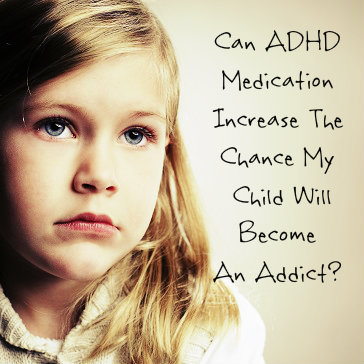 ADHD is a disorder that is characterized by difficulty focusing and paying attention, impulsive and inappropriate behaviors and hyperactivity. These often manifest during school hours making academic success a major challenge for kids with ADHD. Medications used to treat the disorder are stimulants. This may seem counterintuitive, but they dramatically reduce hyperactive impulses, and allow children to focus and pay attention. For the best results, a combination of medication and behavioral therapy is often recommended by experts.
ADHD is a disorder that is characterized by difficulty focusing and paying attention, impulsive and inappropriate behaviors and hyperactivity. These often manifest during school hours making academic success a major challenge for kids with ADHD. Medications used to treat the disorder are stimulants. This may seem counterintuitive, but they dramatically reduce hyperactive impulses, and allow children to focus and pay attention. For the best results, a combination of medication and behavioral therapy is often recommended by experts.
Are ADHD Drugs Addictive?
Stimulants used to treat ADHD, including Adderall and Ritalin, are addictive. Like other addictive drugs, they produce a pleasurable sensation related to certain brain chemicals. If these drugs are abused over time, the user can become addicted. When taken as directed, however, the risk of becoming addicted to these drugs is low.
If you monitor your child’s intake of his ADHD medications and follow your doctor’s instructions carefully, there is little chance that he will become addicted. It is natural to be concerned about the possibility. If it makes you more comfortable, keep the medication locked away and give the right dose to your child when he needs it. By controlling the administration, you can be certain he is not taking more than he is supposed to.
Does Use Of ADHD Drugs Lead To Further Drug Abuse?
There has been some debate about whether or not being medicated with stimulants for ADHD puts children at risk for later drug abuse. The best answer so far, thanks to researchers, is no. There seems to be little to no evidence that using ADHD medications as directed will lead to experimentation with other drugs, or addiction.
The greater danger results from the misuse of ADHD medications as a study drug. Teens and young adults, especially those in high school and college, abuse prescription stimulants as an aid to both studying and partying. One major reason for this abuse is that the medications have the effect of helping them stay awake. If a student needs to cram for an exam, she might take Adderall to stay up all night. Some students even take the medications to stay up late for the purpose of partying all night long. Both habits are very risky because they involve using addictive drugs without supervision from a doctor. This behavior can lead to addiction and other health problems.
Making Sure All Of Your Questions Are Answered When It Comes To ADHD Meds
The bottom line is that your child with ADHD could benefit greatly from supervised use of stimulant medications. If your doctor wants your child to try one, make sure all of your questions are answered and your concerns are addressed, but rest assured that using these drugs will not make your child an addict or a future drug abuser. Supervise your child, explain to him the dangers of abusing any kind of drug, and speak to your doctor to make sure that you and your child feel comfortable going forward with treatment.
Learn More About The ADHD And Drug Abuse Connection
04 Feb 2014
How Is Your Drinking Impacting Your Kids?
You don’t have to be an alcoholic for your drinking to have a negative impact on your children. When you drink too much, there are numerous ways in which your children are affected. You are shaping their attitudes toward alcohol and drinking, but you also may become a different person when you drink. Your shifting moods, your time devoted to drinking, your use of alcohol to temper your emotions; all of these impact your children.
Does My Drinking Determine If My Child Will Drink?
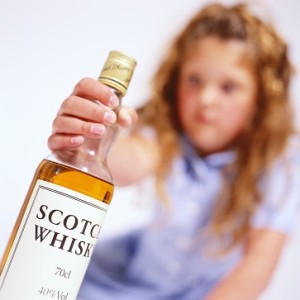 Everything you do and say helps to shape your child’s outlook on life and how he relates to the world. What you do—your actions—are far more impactful than what you say. If you lecture your children on the importance of drinking in moderation and then regularly go off the deep end with your own drinking, the latter is what they really notice.
Everything you do and say helps to shape your child’s outlook on life and how he relates to the world. What you do—your actions—are far more impactful than what you say. If you lecture your children on the importance of drinking in moderation and then regularly go off the deep end with your own drinking, the latter is what they really notice.
According to research, the best way to positively impact your children’s future drinking habits is to limit their exposure to alcohol. When you demonstrate that drinking excessively is fun and normal, your children will most likely adopt the same attitude.
Does My Drinking Affect My Children Emotionally?
Your drinking can have a strong impact on the emotional states of your children. A wide range of feelings are stirred up in your children when you have had too much to drink: embarrassment, sadness, anger and perhaps worst of all, helplessness. When you drink too much, you get out of control, whether you are a happy or a hostile drunk. Your children will notice this and feel helpless to do anything about your inevitable mood shift.
Your drinking may also cause your children to feel stressed and worried. They might be concerned that you will drive drunk, that you’ll get hurt or even that you will hurt them when your mood turns sour. They may worry and become stressed when they see you begin to drink, wondering if you will have too much this time and hoping that you will remain in control and limit yourself better. The way your drinking makes your children feel can leak into all aspects of their lives. They may end up feeling depressed or anxious at school, embarrassed to have their friends over to the house or always afraid of you when you have a drink in your hand.
How Can I Limit The Harm My Drinking Causes?
Out of control and excessive drinking are what impact children so negatively. You need not be an alcoholic to have these effects on your children, but you also do not need to abstain entirely from drinking to ensure they are safe and happy. To limit the harm your drinking causes, limit your drinking. Demonstrate to your children a healthy relationship with alcohol. Don’t drink so much that you lose control or to get tipsy. Limit the number of nights that you have a drink. When you drink reasonably, you model a good attitude toward alcohol.
Another important aspect of normal drinking is to avoid turning to alcohol to cope with stress or other emotions. Emotional drinking is a slippery slope that can lead to problem drinking. Instead, model for your children healthy ways to cope with stress. Use exercise, relaxation techniques, and hobbies to cope with negative emotions.
If you do mess up and drink too much in front of your kids, or end up with a hangover, sit your kids down to talk about it. Open discussions about alcohol will help your kids. They will feel like they can talk to you and open up about what concerns them. Your actions will always have an impact on your children; whether that impact is positive or negative is up to you.
Find Out If Alcohol Is Ruining Your Life With These Simple Questions
25 Dec 2013
Stopping The Flow Of Dangerous Synthetic Drugs
The chemical make-up of synthetic drugs are in a continuous state of flux, means their effects aren’t predictable and correct emergency treatment can be difficult. Those in law enforcement are often handcuffed in terms of prosecution because these substances can be modified to slip through current drug laws. Now there’s a group that’s trying to tighten the net.
The National Alliance for Model State Drug Laws (NAMSDL) want to stop the proliferation of synthetic drugs, which are the second most commonly used illicit drug among young people, according to a 2012 Monitoring the Future survey. One out of every nine high school seniors reported having used synthetic drugs within the past year.
How And Why The Recipes Of Synthetic Drugs Keeps Changing
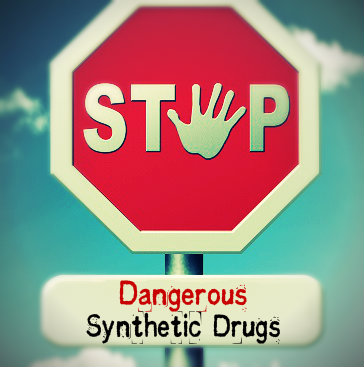 Synthetic drugs can be either man-made marijuana (cannabinoids) or chemicals related to amphetamines (cathinones). The synthetic marijuana, often sold under the names K2 or Spice, are plant materials resembling potpourri that are sprayed with chemicals that mimic THC, the psychoactive agent in marijuana. But the recipe keeps changing in order to evade prosecution.
Synthetic drugs can be either man-made marijuana (cannabinoids) or chemicals related to amphetamines (cathinones). The synthetic marijuana, often sold under the names K2 or Spice, are plant materials resembling potpourri that are sprayed with chemicals that mimic THC, the psychoactive agent in marijuana. But the recipe keeps changing in order to evade prosecution.
In 2012 the federal government made synthetic drugs, also known as novel psychoactive drugs, illegal. But the law defines the drugs narrowly. Once those who make the drugs tweak the recipe, the new compound no longer fits within the narrow definition of synthetic drugs. To further complicate the matter, the substances are often sold as bath salts, incense or plant food with a label saying they’re not intended for human consumption.
How The Spread Of Synthetic Drugs Is Trying To Be Halted
What NAMSDL wants to do is work with state lawmakers to make classes of substances illegal, rather than specific chemical combinations. The laws could give examples of what some of those substances might look like, but would leave room so that potential new chemical compounds would be illegal. That would certainly speed things up for law enforcement that now must often wait a year and a half before each new synthetic drug compound is banned.
NAMSDL also wants to enhance communication between those who see the changing drug landscape firsthand. The Drug Enforcement Agency currently collects and disseminates drug information to concerned parties, but it’s hospital emergency rooms, poison control centers and law enforcement that sees what’s going on in real time. This would help keep the information on synthetic substances truly up-to-date
Synthetic Drug Education And Prevention
NAMSDL is working directly with the Office of National Drug Control Policy and others to create an effective education and prevention campaign aimed at informing moms, dads, emergency room staff and school administrators about what these drugs are and what they do. Education, information flow and improved legislation represent a 360 degree effort on closing the gaps and halting the flow of these dangerous drugs.
Read More About Synthetic Drugs Causing More Emergency Room Visits Than Real Drugs
Teenage substance abuse touches every kind of family regardless of race, social level or education. When a teen uses it never affects just themselves – it impacts everyone around them, especially other family members.
 Family relationships become strained as a teen deepens their use of alcohol or drugs. This happens for many reasons. In the midst of substance abuse, teens can become secretive, irritable, depressed, lazy, hard to motivate and sometimes even angry or aggressive. Obviously, close relationships are negatively affected by this kind of personality and behavior change.
Family relationships become strained as a teen deepens their use of alcohol or drugs. This happens for many reasons. In the midst of substance abuse, teens can become secretive, irritable, depressed, lazy, hard to motivate and sometimes even angry or aggressive. Obviously, close relationships are negatively affected by this kind of personality and behavior change.
Family members may become angry themselves or develop avoidant behaviors in order to deal with an unruly teen under the influence. To avoid conflicts or feelings of guilt and rejection, the teen may increasingly isolate himself in his room away from the family, further weakening the familial bond.
Ignoring And Denying Teen Drug Use
Many families begin by ignoring or denying the existence of the problem, telling themselves it’s just a phase, or excusing the behavior because of difficult circumstances in the teen’s life.
Attempts are made to keep the problem secret and hidden from others. Unfortunately while the family is trying to protect the teen from direct consequences or prying eyes and wagging tongues, they are actually enabling the behavior and preventing the teen from getting much-needed help.
Enabling Teen Addicts
It isn’t unusual for family members to want to show love and mercy. When there’s a sob story parents and siblings may give the teen money, which typically goes to fund the habit. In other scenarios the addict doesn’t ask for money, they simply take it. Again, family members sometimes decide not to confront when money is suddenly missing from their purse or wallet.
Teen Substance Abuse On Younger Siblings
One huge impact of teen drug or alcohol abuse is the example it sets for younger siblings. Little brothers or sisters may decide to imitate the behavior. They start hanging out with the teen’s friends who are likely to be users themselves. Conversely, when siblings don’t respect the abuser it can create a rift in what was formerly a close relationship.
Parents get drawn into the fallout of teen substance abuse, blaming themselves or one another for the problem. Besides not resolving the issue it can wind up producing depression in one or both of the parents, compounding the family’s issues. Without a strong support network, parents and siblings can feel isolated, hurt and impotent.
Family Dangers With A Teen On Drugs And How To Intervene
The fact that teens can become violent while they are drunk or high creates an entirely separate risk issue from all of the relational breakdowns. They may become unpleasant to be around, even violent, and they may lie and steal, making everyone in the home feel terrorized.
What families need to do in order to halt the downward cycle of destruction is intervene. For some families this will mean signing the teen up for an outpatient program, for others it may mean placing the teen in a residential treatment center. Since getting at the root issues of substance abuse often takes time, some families opt for therapeutic boarding schools. Whatever the decision, ignoring the problem won’t make it go away and enabling the problem only makes it worse.
The legalization of marijuana in many states has led to increased availability and experimentation. While many individuals with chronic pain related to a serious injury or illness attest to its medicinal uses, there are still concerns about the recreational use of the drug.
Research has shown marijuana to be a “gateway drug” because experimentation and recreational use can give a user access to more dangerous drugs that carry a higher likelihood of addiction and more serious side effects.
Marijuana Users Experiencing Psychosis Even After Use
Another important concern related to marijuana is research connecting its use to ongoing psychotic episodes. Some studies have shown that users can experience psychosis, not only while under the immediate effects of the drug but for extended period following use.
When teens begin using marijuana, however, the risks may multiply. Teen brains are still developing and any substance use can interrupt the important processes occurring in the structures of the brain, causing long-term cognitive impairment.
 A study led by Willemijn A. Van Gastel of the Rudolf Magnus Institute of Neuroscience at the University Medical Centre Utrecht in the Netherlands examined the effect of marijuana on mental health. While many studies have documented the connection between psychological problems and marijuana use, it is unclear whether cannabis use leads to an increased risk of mental disorders or if those with mental health problems are more likely to use cannabis.
A study led by Willemijn A. Van Gastel of the Rudolf Magnus Institute of Neuroscience at the University Medical Centre Utrecht in the Netherlands examined the effect of marijuana on mental health. While many studies have documented the connection between psychological problems and marijuana use, it is unclear whether cannabis use leads to an increased risk of mental disorders or if those with mental health problems are more likely to use cannabis.
The findings were published in Psychological Medicine.
The study analyzed surveys administered to over 10,000 students aged 11 to 16. The questions on the survey requested information about substance use, including cannabis, alcohol and cigarettes.
The students were also asked about other aspects of life, including whether they had experienced any problems at school or if there was any conflict at home. They were also asked about whether there was any history of molestation and other environmental risk factors for mental health symptoms.
Multiple Problems In School And Behavior Associated With Marijuana Use
The results of the analysis showed that there was an association between marijuana use and psychosocial problems. When other risk factors were taken into account, however, the association was not as strong. In addition, there were risk factors that were associated with negative psychosocial outcomes that were also associated with increased levels of marijuana use, including behavioral problems at school, missing school due to illness, truancy and alcohol and cigarette use.
The authors of the study believe that the presence of substance use, low self-esteem and difficulties with mood disorder symptoms could lead to psychosocial problems and marijuana use.
The researchers were surprised to find that there was no evidence of a relationship between the level of marijuana use and the level of poor outcomes in psychosocial measures. This suggests that the risk factors are a critical component in determining whether marijuana use leads to other negative outcomes.
Can Marijuana Use Indicate If A Teen Might Be At Risk For Mental Health Problems?
The authors note that the findings can be understood as a way to predict future negative behavioral and overall psychological and psychosocial wellbeing. In other words, marijuana use can indicate whether a teen might be at risk for mental health problems.
Drug Prevention And Education To Reduce Risk Of Substance Abuse
The findings are helpful for targeting teens that may be in need of prevention and education efforts to improve mental health and reduce the risk of additional substance use. Screening teens for substance use may also help identify possible areas of high risk for mental disorders.
While marijuana is often considered a harmless substance when used in moderation, many of the effects of the drug are not fully explored. Parents are encouraged to talk openly and often with their teens about the risks associated with marijuana use, including the possibility of mental disorders.
When it comes to teen alcohol and drug use, it seems like there’s always a new method that young people are finding to get high – chugging cough medicine, sniffing glue, snorting bath salts or mixing old medications found in the family medicine cabinet. While it’s normal to be curious, one poor decision can change a person’s life forever.
That’s why authorities and health officials are concerned about a dangerous new trend: smoking alcohol. Because the lungs have such a large surface area, alcohol is absorbed at a much quicker rate when it is inhaled using vaporizers, i.e.: dry ice and bicycle pumps connected to old plastic bottles.
Breathalyzer Comparison
According to Dwayne Baird, spokesperson for the Utah Department of Public Safety, one reason individuals may choose to inhale alcohol is because they believe it won’t show up on a breathalyzer. But Baird says that anyone who understands how the test works knows that a breathalyzer assesses the blood alcohol content and inhaling alcohol actually leads to a higher concentration.
Another reason that people choose to smoke alcohol instead of drink it is that inhaling directly into the lungs delivers a quicker, more intense high. Under normal circumstances, alcohol would be consumed then pass through the body’s stomach and liver where it takes time to metabolize. Dr. Barbara Crouch, Executive Director for Utah Poison Control, equates the practice to binge drinking – when too much alcohol is consumed too quickly, the body has a difficult time successfully processing all of it.
Baird says that the Department of Public Safety still runs across more cases of normal alcohol consumption than it does inhalation methods, but with information able to spread rapidly through social media sites, its popularity with teens could spike quickly.
Scary Results
The body has normal ways of signaling that it has had too much alcohol. When someone drinks to excess, the body responds by causing a person to vomit. That doesn’t happen when alcohol is inhaled. Instead, it passes straight through the lungs into the bloodstream and up to the brain. The problem with that, says Baird, is that it’s difficult for a person to tell when they’ve reached their limit.
Young people in particular tend to regard themselves as invincible and often don’t consider the consequences of their actions or how such consequences might impact their future. But inadvertent alcohol poisoning is a real and even bigger threat when inhaling than drinking alcohol.


